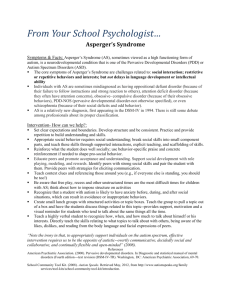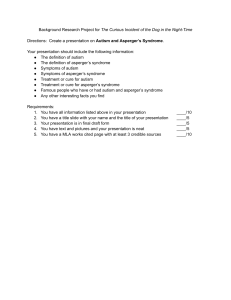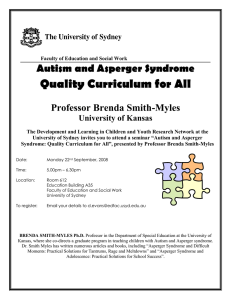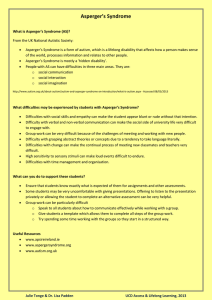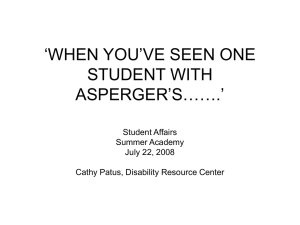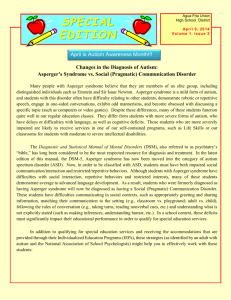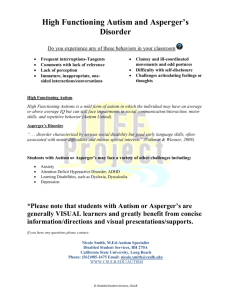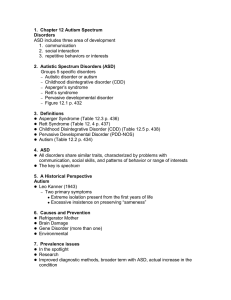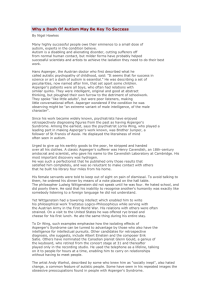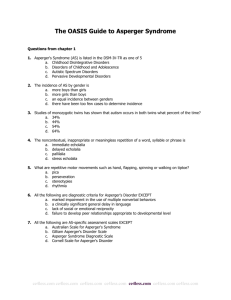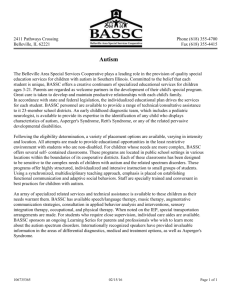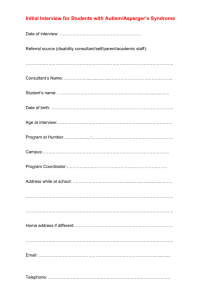What is Asperger Syndrome - Exceptional Children's Assistance
advertisement
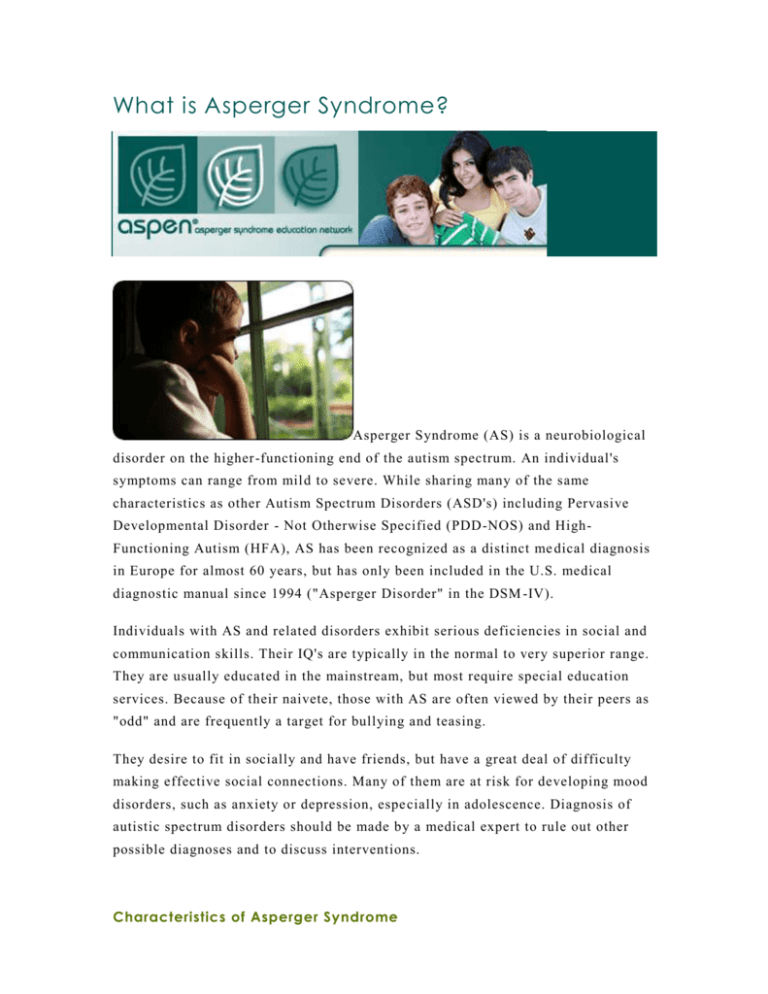
What is Asperger Syndrome? Asperger Syndrome (AS) is a neurobiological disorder on the higher -functioning end of the autism spectrum. An individual's symptoms can range from mild to severe. While sharing many of the same characteristics as other Autism Spectrum Disorders (ASD's) including Pervasive Developmental Disorder - Not Otherwise Specified (PDD-NOS) and HighFunctioning Autism (HFA), AS has been recognized as a distinct me dical diagnosis in Europe for almost 60 years, but has only been included in the U.S. medical diagnostic manual since 1994 ("Asperger Disorder" in the DSM -IV). Individuals with AS and related disorders exhibit serious deficiencies in social and communication skills. Their IQ's are typically in the normal to very superior range. They are usually educated in the mainstream, but most require special education services. Because of their naivete, those with AS are often viewed by their peers as "odd" and are frequently a target for bullying and teasing. They desire to fit in socially and have friends, but have a great deal of difficulty making effective social connections. Many of them are at risk for developing mood disorders, such as anxiety or depression, espe cially in adolescence. Diagnosis of autistic spectrum disorders should be made by a medical expert to rule out other possible diagnoses and to discuss interventions. Characteristics of Asperger Syndrome Each person is different. An individual might have a ll or only some of the described behaviors to have a diagnosis of AS. These behaviors include the following: o Marked impairment in the use of multiple nonverbal behaviors such as: eye gaze, facial expression, body posture, and gestures to regulate social interaction. o Extreme difficulty in developing age -appropriate peer relationships. (e.g. AS children may be more comfortable with adults than with other children). o Inflexible adherence to routines and perseveration. o Fascination with maps, globes, and routes. o Superior rote memory. o Preoccupation with a particular subject to the exclusion of all others. Amasses many related facts. o Difficulty judging personal space, motor clumsiness. o Sensitivity to the environment, loud noises, clothing and food textures, and odors. o Speech and language skills impaired in the area of semantics, pragmatics, and prosody (volume, intonation, inflection, and rhythm). o Difficulty understanding others' feelings. o Pedantic, formal style of speaking; often called "little professor," verbose. o Extreme difficulty reading and/or interpreting social cues. o Socially and emotionally inappropriate responses. o Literal interpretation of language. difficulty comprehending implied meanings. o Extensive vocabulary. Reading commences at an early age (hyperlexia ). o Stereotyped or repetitive motor mannerisms. o Difficulty with "give and take" of conversation. Copyright © 2011 - ASPEN Email: info@aspennj.org For more information …..: ECAC Exceptional Children’s Assistance Center 907 Barra Row, Suites 102/103 Davidson, NC 28036 1 - 800 - 962 – 6817 www.ecac-parentcenter.org ECAC is the Parent Training and Information Center of North Carolina. All our services are free to Families. ASPEN 9 Aspen Circle Edison, NJ 08820 USA Phone: (732) 321-0880
